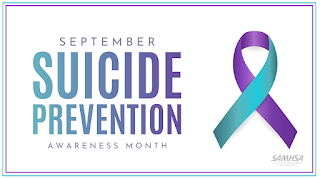Breaking the Stigma on Mental Illness
by Angela Fernandez, School Psychologist
Although Mental Health Awareness Month has come to an end, the need for awareness and acceptance of mental illness has not. I encourage you to read on to learn more about mental illness, stigma, and steps you can take to help end the stigma associated with mental illness.
Let’s first talk about what it means to have a mental illness. According to the American Psychiatric Association (2021), a mental illness is a condition defined by a combination of changes in thought patterns, emotions, and behavior that cause distress and/or dysfunction in social, family, and/or school/work activities.
But I’m not aware of anyone who has a mental illness, so it must not be THAT common, right? Wrong! Mental illnesses are very common. So far in 2021, 19% of adults in the United States of America are experiencing a mental illness. That is over 47 million Americans (Mental Health America, Substance Abuse and Mental Health Data Archive, 2021)! Children are also affected by mental illness. In 2016, 16.5% of American children ages 6-17 experienced a mental health disorder. That is around 7.7 million children (National Alliance on Mental Illness, 2021)! Keep in mind that these numbers do not include Substance Abuse Disorders or unreported/undiagnosed mental illnesses. It is likely that there are many individuals who are experiencing a mental illness who have not received a diagnosis or who have not accessed support… This means that mental illnesses are likely under-reported.
Now let’s talk about stigma. You have probably heard the term before, but what does it mean? According to the American Psychiatric Association (2021), stigma around mental illness can be defined as the negative views or feelings towards individuals with mental illness. These may lead to fear, mistreatment, and the spread of false information or beliefs about individuals with mental illness. Stigma is often caused by a misunderstanding or misinterpretation of what it means to have a mental health condition, as well as false portrayals of what it “looks like” by the media. Stigma is typically thought of as coming from others. However, self-stigma also exists. There are negative feelings, ideas, and beliefs that individuals with mental illness may have about their own mental health or condition. Individuals with mental illness may have feelings of embarrassment, shame, or guilt because of stigma.
Is this stigma a serious problem? It would take an entire book to touch on all the reasons why stigma around mental illness is a serious problem. One of the biggest reasons is that more than half of individuals living with mental illness do not get support or help for their illness due to their concern of how they might be viewed if they do (Mental Health America, 2021). Cultural values may also impact someone’s decision to seek treatment. Untreated mental illnesses can be debilitating and have the potential to lead to exacerbated symptoms and even suicide.
How Can You Help?
- Educate Yourself and Others.
Stigma often comes from a lack of knowledge or misunderstanding about mental illness. By educating yourself on mental illnesses, you will develop a greater understanding of different conditions, their symptoms, and treatments. You will learn about different resources available. You will also learn how to best support individuals who are living with these conditions. Having this knowledge will help fight any stigma you may have around mental illnesses, whether it be implicit (outside of your immediate awareness) or explicit (within your awareness). Additionally, you will be able to identify false information and beliefs that you may hear being spread. By educating yourself on mental illness, you are becoming more equipped to disrupt this chain of false ideas being spread that contribute to the stigma. If you find yourself in this situation, take the opportunity to share facts. Keep in mind that it is very possible (and likely) that those feeding the stigma may not be doing it with ill intent. They might not even realize they are doing it at all! For this reason, I suggest you share facts in a non-confrontational, non-judgemental manner.
- Talk Openly About It.
Talking openly about mental illness helps to make the topic less taboo. Many people feel that they cannot or should not talk about mental health. The more you talk about it, the more it normalizes it. It’s possible that talking with others about your own personal experiences with mental health could make them feel more comfortable to open up, too. You could be the first person that has talked to them about it. Hearing your experiences might help them feel more supported and less alone. You could be the reason someone feels heard or decides to get help!
- Treat Physical and Mental Health Equally.
Mental health IS just as important as physical health, and it should be treated as such! We live in a society that is comfortable with the idea of taking a day or two off for being physically ill but uncomfortable taking time off to prioritize mental wellbeing. Fortunately, society seems to be moving in the right direction and “mental health days” are becoming more popular/accepted. However, there still seems to be more guilt and shame associated with taking a mental health day than with taking a day off for a physical illness. Learning about the ways mental health and physical health are connected will help to fight those feelings of shame or guilt. Declining mental health is associated with declining physical health and vice versa. Advocate for the importance of your mental health and the mental health of others! No one should feel shame for taking care of their mental health.
- Pay Attention to the Language You Use.



Comments
Post a Comment